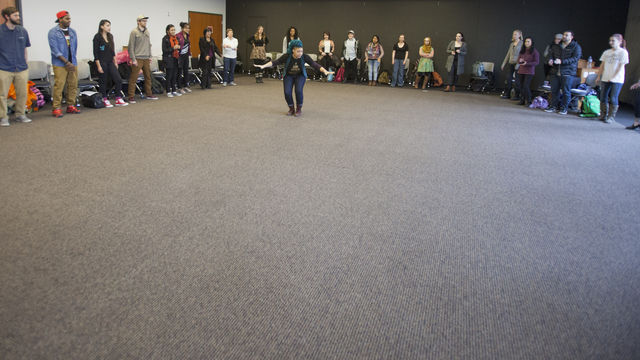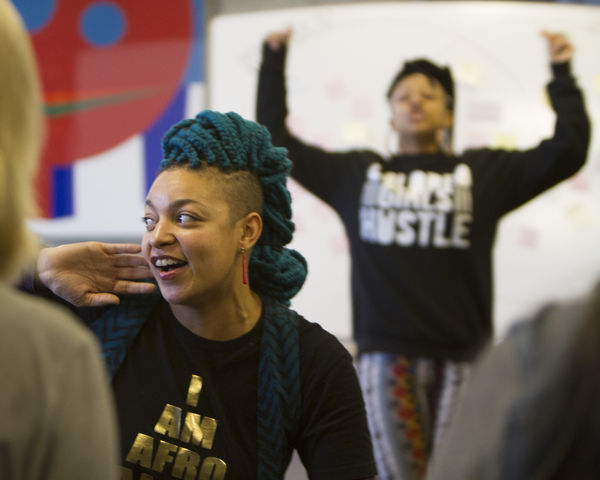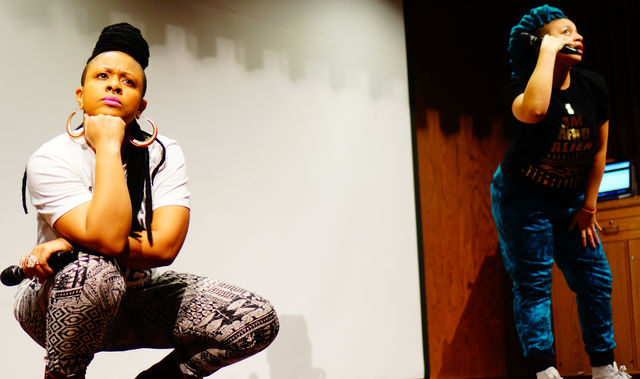There’s power in twerking, just as there is power in community. Both were up for discussion at the Colored Girls Hustle workshop, the third event of Sex Week 2016, held Wednesday, Feb. 10. Colored Girls Hustle is a group comprised of Taja Lindley (“like Taj Mahal”) and Jessica Valoris, two decade-long friends who work from their experiences as black women to create engaging and feminist hip-hop music.
Walking into the Okazaki Conference Room in the Social Work building for the workshop, the room’s composition clearly showed that what was to come would deviate significantly from typical class structures. Chairs were organized in a circle. The only gap in the seating was filled by a whiteboard, on which were drawn two overlapping circles, one labeled “Hip-Hop” and the other “Feminism.” Participants were invited to share their ideas on either term and/or the ways they believed the terms combine using sticky notes. The board was used to instigate discussion about the work Lindley and Valoris do and the stereotypes they work against both within feminism and within hip-hop as feminist, black hip-hop artists.

Moving on from the whiteboard after the room had filled to nearly 40 people came the fun part: hip-hop and rap music. Lindley and Valoris insisted that everyone engage, and after a few minutes of fairly awkward interaction, people started to loosen up and contribute. At one point, everyone in the room was adding some sort of sound to create an organically grown soundscape — people were moving, singing, clapping and speaking in a rhythm that grounded everyone into a community that had certainly not existed prior to that point.
The duo’s performance on Wednesday night was equally engaging, with Valoris and Lindley constantly asking the audience to dance, provide beats or answer questions.
After their first song, they drew in the crowd by doing several call-and-response numbers, one encouraging them to consider what their “hustle” is, or what they wish to make better in society.

The pair had a remarkable ability to increase the energy in the room with a simple dance move or line, creating an environment that kept the audience excited, though there weren’t many present. That energy came largely from how the two fed off of each other and fused their passion and sense of humor into their performance.
The most impressive part of the show was the girls’ great creativity, as one began to recognize that they had reimagined popular hip-hop songs to express their own original ideas about gender, race, and sexual equality.
Lindley told the audience, “Our music is music for the movement, to keep people encouraged and in their courage.”
That theme was evident through Colored Girls Hustle’s songs and performance, as they made everyone present feel encouraged and ready to fight for equality.


